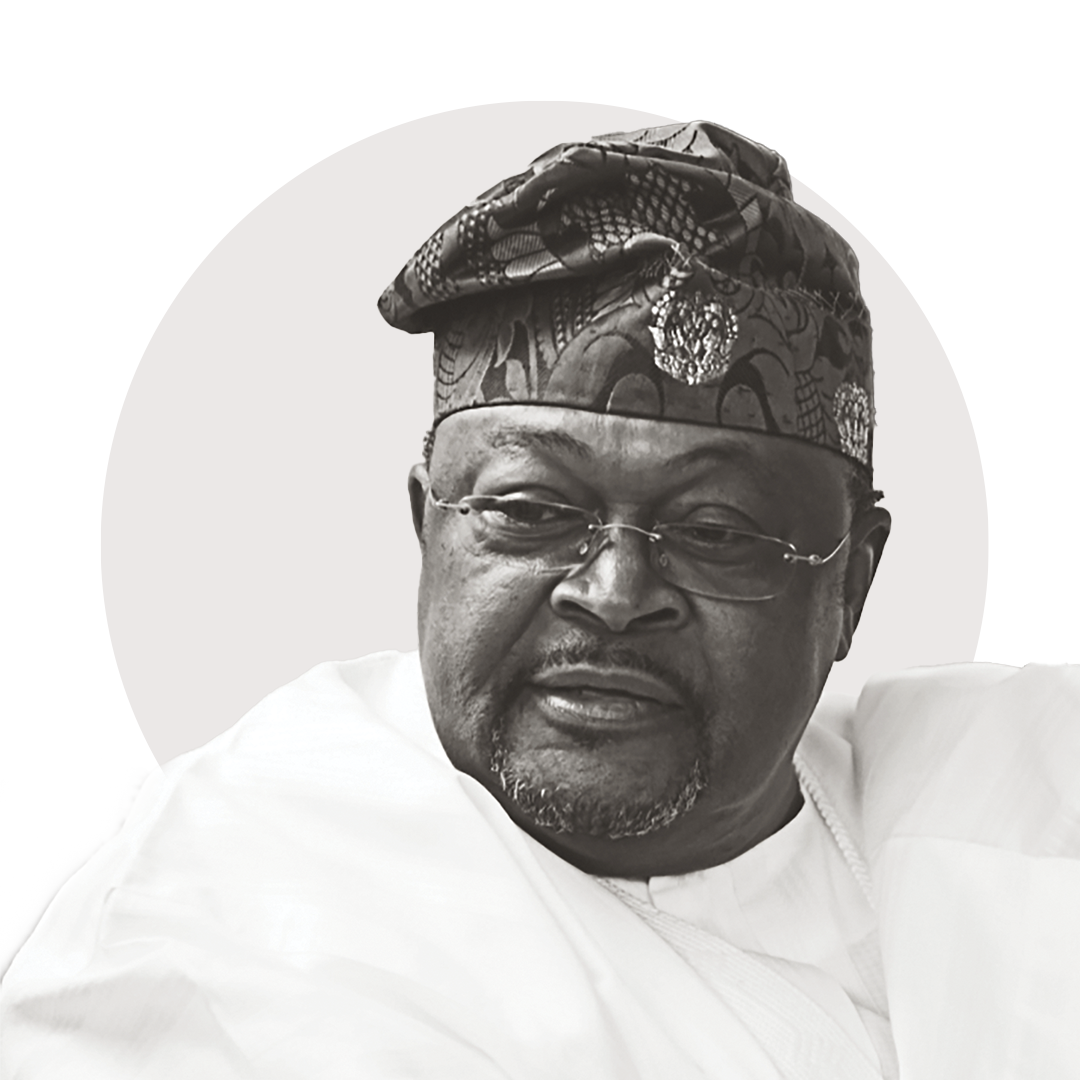The once and future richest person in the world (once the Bezos divorce finalizes), Bill Gates will happily apply the dispassionate, sharp-elbowed logic that made him one of the most fearsome business minds of the past century—even when the subject, abstractly, is him, as well as the other, suddenly unpopular members of the Three Comma Club.
“I think it’s fascinating that for the first time in my life people are saying, ‘Okay, should you have billionaires?’ ‘Should you have a wealth tax?’ I think it’s a fine discussion.”
It’s a discussion that took place yesterday just a block from Trump Tower, home of America’s first-ever billionaire president. “My opinion is that there should be an estate tax and maybe even higher than we have today. Among The Forbes 400, I don’t think we’d get a majority—Warren [Buffett] and I are sort of against interest on that,” says Gates. “So I think there’s plenty of debate about how capital should be taxed, how estates should be taxed.”
READ MORE | Jeff Bezos Says National Enquirer Owner Tried To Blackmail Him
But as for the kind of disincentivizing economics lamented by the Beatles in “Taxman” and increasingly championed by America’s far left, Gates remains clear: “The idea that there shouldn’t be billionaires—I’m afraid if you really implemented something like that, that the amount you would gain would be much less than the amount you would lose.”
Loading...
In looking at how Gates now deploys tens of billions philanthropically—both the money he and his wife Melinda put into their eponymous foundation, the world’s largest, and that given and pledged by Buffett—it’s critical to understand that perspective.
Just as Gates views, correctly, that a tax system moving from progressive to confiscatory creates less wealth and innovation overall, he and Melinda examine issues systemically.
“It’s more evocative to say you’re saving one life than to say you’re saving a million,” he says. “It’s a weird thing.”
That worldview comes through in the 2019 edition of the Gateses’ annual letter, released this morning. Ostensibly, this year’s letter, which lays out their philanthropic observations and priorities, focuses on nine surprises that have inspired the Gateses to take action. In reality, it’s a valentine to the power of philanthropic investment—the idea of giving not to salve problems, but to solve them.
“I think it’s fascinating that for the first time in my life people are saying, ‘Okay, should you have billionaires?’”
The Gateses write about Becoming A Man (BAM), a group counseling program that helps teenage boys stay in school by channeling their anger. (Bill Gates says he had a “touching experience” sitting in on a group, and even took his turn to vent—about learning that global polio cases were going up.)
And their “toilet fair” in Beijing, designed to inspire a next-gen toilet that can alleviate sanitation issues. Their fixation on Africa, whose young population promises to transform the global labor force.
All of these initiatives tell a similar story. They’re about “picking novel ideas” or “off-the-wall theories,” as Gates says, and then proving that the concepts work. “Once you find a solution and want to scale that up, it’s usually government money.”
That’s a sticking point when dysfunctional Washington can’t enact even the most obvious forward-thinking policies. Take foreign aid, less than 1% of the U.S. budget and an expenditure that, since the Marshall Plan, has consistently generated positive ROI, in terms of creating stability and vital trading markets and stemming deadly diseases.
While Congress rejected President Trump’s proposed foreign aid cuts, Gates remains worried. “It just can’t be ignored, given the intensity of political debate over domestic issues—and if you have one party saying, ‘Hey, helping foreign countries, that’s kind of a sucker’s deal, does it even benefit us?’”
This shortsighted nationalist streak is a global issue. “We’re very worried that if Brexit goes poorly, at least for a time, [the U.K.] might not see [foreign aid] as a priority at all,” he says. “If the French domestic stuff gets too painful, will they stay generous?”
In education, Gates has faced similar headwinds. “You get into political policy things in terms of what you’re trying to achieve. It’s tricky.” The most obvious example here: his previous battle for the Common Core education standards, which critics like Diane Ravitch undermined by terming such efforts a “billionaire boys club.”
READ MORE |Facebook Profits Defy Critics – Zuckerberg Vows Company Has Changed
“The attack that ‘Why should you even have a say in setting the agenda?’—that has a certain resonance to it,” admits Gates.
So why should billionaires get to choose what problems we’re solving?
“Philanthropy is there because the government is not very innovative, doesn’t try risky things and particularly people with a private-sector background—in terms of measurement, picking great teams of people to try out new approaches,” says Gates. “Philanthropy does that.”
Philanthropy, as practiced by the Gateses, also takes risks in the existential terrain political leaders would rather bury their heads in. Bill Gates still worries about nuclear proliferation, an area his partner-in-crime Buffett has championed. He’s been the global leader on the risks around pandemics and also, to a lesser degree, climate change, where his $1 billion Breakthrough Energy Ventures fund makes big bets.
Artificial intelligence looms on the horizon as the newest threat brought on by innovation. “In the long run,” says Gates, “AI is a tough problem.”
Notably, Gates does not feel that way about social media. Last century’s boy wonder, who faced scrutiny for what the federal government saw as Microsoft’s monopolistic tactics, clearly has empathy for this century’s boy wonder, Mark Zuckerberg, now a lightning rod for Facebook’s role in the erosion of democracy, as most recently outlined by Facebook investor Roger McNamee.
“I think what Roger [McNamee] has said is completely unfair and kind of outrageous,” says Gates. “They’re blaming Mark for everything. I mean, Trump was not elected because of Facebook. They say ‘filter bubble.’ All these polarization things. … Well, be clear. I get to read whatever I want to read, I get to listen to right-wing radio, I get to listen to Fox News. You kill Facebook and I can still live in my filter bubble. But filter bubble is not just my Facebook feed, so acting like, ‘Hey Mark, wake up someday and solve the filter bubble problem.’ No, Roger McNamee has no practical solution to the filter bubble thing.”
“They’re blaming Mark for everything. I mean, Trump was not elected because of Facebook.”
(“It’s hard when you’re in this vortex,” adds Gates. “I was in such a vortex once upon a time. A little bit different because mine was more of a court-related thing than the broad view of whether the software was good or not.”)
Ultimately, Gates, whose net worth, even after large donations to the foundation, approaches $100 billion, views philanthropy as a vital force for good. And he thinks that potential critics—even a loony potential British prime minister—will come around to that view.
“When I met with Jeremy Corbyn for the first time, does he view me as the billionaire guy who collected more money than he thinks anybody is supposed to collect?” recalls Gates.
“Or does he view me as the philanthropist who’s helping improve Africa and hopefully learn about education? Fortunately he was very nice, he viewed me as the second. But I’m sure he had to hesitate: ‘This guy is one of those people that maybe there should be none of’.”
-Randall Lane, Forbes Staff
Loading...





















